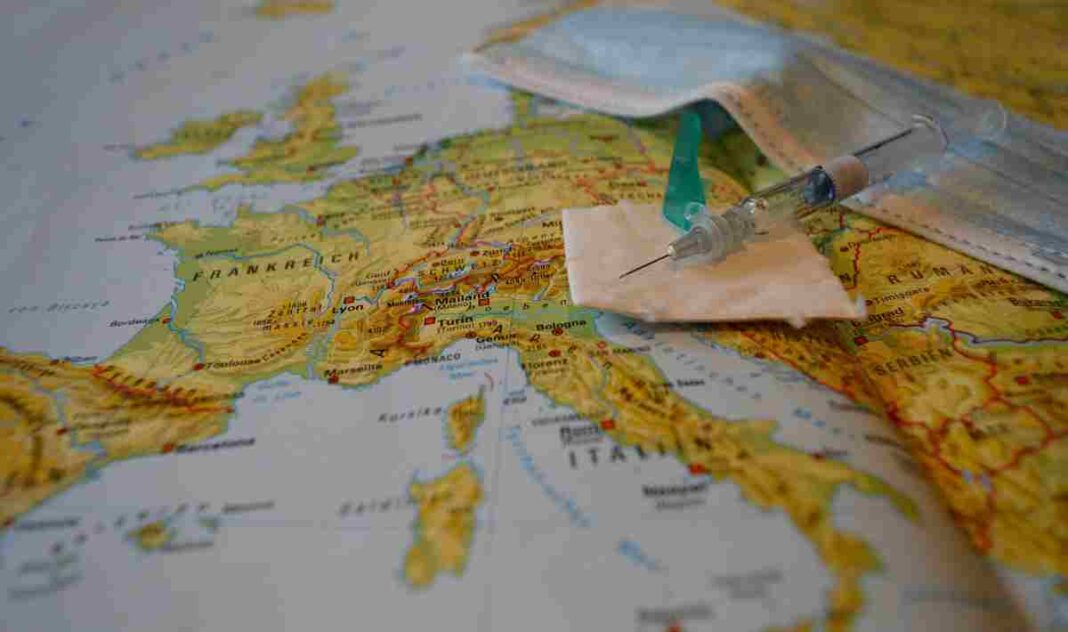INDIA: The COVID-19 outbreak, which shut down borders around the world, has changed the way people travel a lot. However, now that the number of infections has gone down and restrictions have been lifted, people can travel again. In 2023, finally, it seems like we will get to rave without being quarantined, as more and more people are getting vaccinated.
Many countries have opened their borders and loosened their COVID travel restrictions, so there is no longer a need for testing before you leave and quarantine after you arrive. But not all places have returned to normal—some nations, including the USA, still ban travellers who are not vaccinated.
Fortunately, numerous alternate destinations accept travellers despite their vaccination status.
Here are a few countries listed where you are welcome even if you are not vaccinated:
Spain
Explore Spain’s lively culture and a variety of landscapes. Spain’s top obsessions are food and wine; indulge in the finest meals with tapas in a rustic bar for a gastronomic experience that will undoubtedly be the highlight of the journey. Combine it with diverse spirits like Salvador Dali, Pablo Picasso, and Antoni Gaudi.
EU and non-EU residents won’t need to provide documentation for their immunisations, recovery, or a COVID-19 test result as of October 21, 2022, in order to enter the country.

Iceland
The landscape of Iceland offers an endless string of ice fields, mountains, and volcanoes that are all covered in snow. The beautiful ice landscapes of the Nordic countries, which can now be seen by people who haven’t had their shots, are unlike anything else on Earth.
Iceland has eliminated all entry limitations for COVID-19. Iceland is now open to all visitors, regardless of their vaccination status. Additionally, the nation no longer requires online health forms to be filled out before entry and on-site quarantine. The mandatory mask has also been removed.

Georgia
COVID-related entry restrictions are no longer in effect in Georgia. On June 15, the Georgian Ministry of Foreign Affairs released the information.
International travellers won’t need to show evidence of COVID-19 vaccination or a negative COVID-19 PCR test as a condition of entry as a result of the change. Vaccinated and unvaccinated guests are subject to the new law.

Thailand
International travellers will no longer need to show evidence of vaccination or a negative COVID-19 test result to enter the country as of October 1.
Additionally, people won’t need to show identification to enter crowded activities. The nationwide state of emergency, which was scheduled to conclude on September 30th, was declared permanent by officials.
The choice was made after last Wednesday’s conference with the National Communicable Diseases Committee (NCDC).

Mexico
Mexico’s stunning sugar-white beaches, cenotes (natural swimming holes), deserts, and hundreds of colonial towns have everything travelers—vaccinated and unvaccinated—might need for a tranquil or adventurous vacation. Even better, Mexico does not require tourists to have a negative COVID-19 test or a vaccination certificate—everyone is welcome here!
Greece
Greece welcomes visitors from the EU and other countries, such as the US, the UK, and New Zealand, to its magnificent shores with crystal-clear water, the Parthenon, the Temple of Apollo, and the Temple of Poseidon.
Greece has lifted all entrance restrictions for COVID-19 for both vaccinated and unvaccinated travellers as of May 1. Visitors to the nation won’t have to undergo a COVID-19 test, show proof of vaccination, or endure confinement.

The Dominican Republic
This tropical paradise is surrounded by 900 miles of Caribbean coastline, first-rate resorts, and lively nightlife. There are no vaccinations required to visit.
It is not necessary to have a negative COVID-19 screening. Upon landing in the Dominican Republic, quick tests are carried out on a random sample of passengers, but they rarely occur.
El Salvador
This nation in Central America has eliminated all limitations. This implies that both vaccinated and unvaccinated travellers can enter the country without having to undergo a test or show evidence of vaccination.
However, some activities or tourist destinations might demand that attendees show evidence of immunisation.
Singapore
The requirement that visitors to Singapore have gotten all advised vaccinations has been removed, along with the COVID-19 entry restrictions that went along with it. Documentation about the coronavirus is no longer needed for entry.
The modification took effect on February 13, 2022. Travelers won’t be subject to border restrictions after that period. This involves the elimination of the need to show a COVID-19 vaccination certificate or a negative test result.
Cyprus
Old tombs, forts, and castles, along with sandy beaches, are all present in Cyprus. And those aren’t the only reasons you ought to think about spending your vacation this year on this lovely island. Even in the winter, it’s a fantastic idea to travel to Cyprus because it has one of the warmest climates in the Mediterranean.
The fact that you can visit Cyprus even if you are not immunised is unquestionably the greatest news. It employs the ECDC classification, which classifies nations into three groups: green, yellow, and red.
Visitors from red-listed nations, including the United States, who are not immunised, are required to show proof of a negative PCR test that was performed within 72 hours of their arrival in Cyprus and to submit to a seven-day, cost-free quarantine period.
The PCR test result needs to be printed (not sent via SMS), have a barcode, be completely written in English, and be stamped by the lab or facility that conducted the test. All arrivals are required to pay for their own RT-PCR test once they are in the nation.
Also Read: 7 Best Travel Gadgets to Make Your Next Trip Enjoyable



